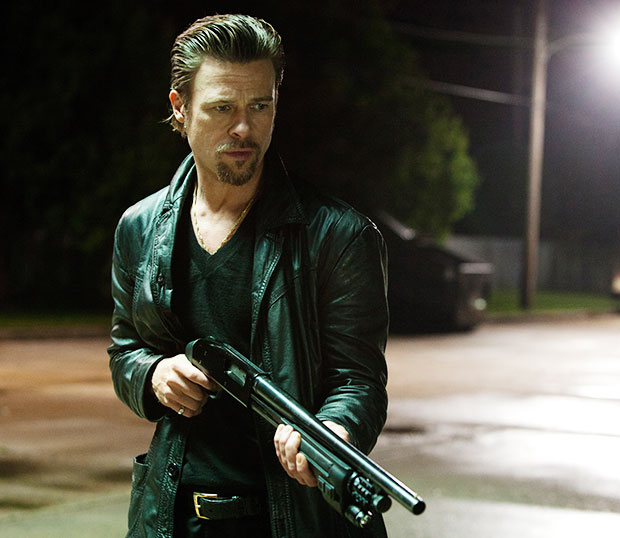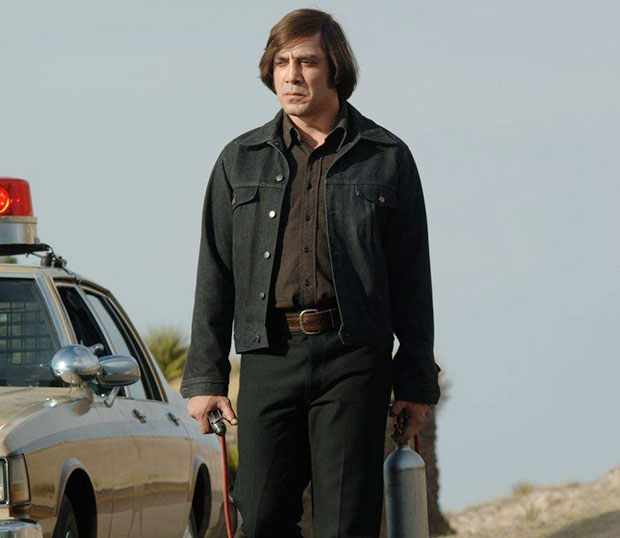
There are certain characters that have become inextricably affiliated with art films, or at least films of similar high regard. These characters are often dealing with extreme emotional turmoil and their life journeys raise profound questions about the human condition. But when listing the types of characters that tend to populate movies with praiseworthy artistic sensibilities, hitmen would have a rather lengthy wait before hearing their name mentioned. This is unjust.
Since the golden age of the western, and then into the height of the Warner Gangster movies, we have developed an affinity for outlaws — and hitmen would certainly qualify as such. The idea of centering a film on an antihero who kills people for a living may seem a function of baser exploitation, but the fact is that some truly outstanding films, well deserving of being lauded as works of art, have featured all manner of assassins (and this week’s Killing Them Softly may join their ranks). So how do these films separate themselves from the cheaper action shoot-em-ups that might also revolve around contract killers?
The Duality of Humanizing
The most recognizable difference between a multifaceted, morally ambiguous protagonist, and a reprehensible or one-note killer meant to please the groundlings , is the degree to which the filmmaker humanizes that character. It is a means of adding complexity and, in some cases, uneasy amiability to characters our moral compass should have us rejecting outright. The interesting thing about some of the truly great films about assassins, however, is that the injection of humanity doesn’t have to absolve their sins.
In Luc Besson’s Leon, Jean Reno plays a ruthless hitman who, against his better judgment, takes in the daughter, played by Natalie Portman, of a recently murdered couple. His relationship with Portman allows the audience to forgive him his murderous occupation. Luc Besson adeptly plays with the gray moral standards by having Leon’s twelve-year-old ward discover and accept his profession. Leon’s commitment to protecting her, and indeed to maintaining her happiness, makes him incredibly empathetic and we no longer see him as merely a mass murderer for hire.
But humanizing a character does not always result in a good guy. Take Anton Chigurh in The Coen Brothers’ No Country for Old Men. Javier Bardem does an amazing job portraying Chigurh as, not so much an assassin, but as a force of Biblical wrath; something Old Testament that cannot be deterred by any interference from mankind. And yet, the last we see of Chigurh, he’s wounded in a completely boneheaded car accident and limps into the sunset. Do we like Chigurh as a result? No. But this moment makes the monster mortal; adding a layer of nuance and density to that role. It also plays perfectly into the Coens’ darkest of senses of humor.
Watch: Brad Pitt Is The Great American Gangster in ‘Killing Them Softly’ — TRAILER
Speak The Speech, I Dare You
These two differing tactics for humanizing your hitmen actually coalesce in Pulp Fiction. We do like Jules and Vincent, but we have no illusions about their turpitude. One could argue in fact that the moment we like them most is when they nearly irrevocably screw up that hit by accidentally shooting Marvin in the face. They become more relatable at that point, more human; who hasn’t messed up on the job? However, there is also something to be said for the dialogue elevating a standard and, fittingly, pulpy hitman story.
There is a classic-style ritual to the way particularly Jules carries out his assignments. He recites Bible passages in a slowly building monologue that serves as the victim’s last rites. Is it immensely quotable? Absolutely, but this dialogue isn’t just for spectacle. The pulse of Pulp Fiction is in its language, its vocabulary and specificity of referential jargon. So much of the character-building necessary to make something more of a fimic killer is tied up in what they say and how they say it. Actions may speak louder than words, but ask yourself this question: once Jules is done delivering his thunderous sermon, do we ever see one bullet enter the victim to whom he is preaching?

Death: The Ultimate Punchline
Let us again examine the Coens and their, shall we say, advanced sense of humor, which tends to turn up in even the most somber of situations. Fargo is absolutely a comedy, and astonishingly we even find ourselves laughing at hitman Steve Buscemi in a wood chipper. There is something to be said for these darkly comedic approaches allowing us to subconsciously deal more directly with our own mortality. We laugh at death to take at least an ounce out of the sting of its inevitability.
Similarly, we are given leave to laugh at death in films like In Bruges and Grosse Point Blank, two fundamentally great films about assassins. The wisecracking, sometimes farcical hitmen we see in such films don’t just aid in our unspoken coping with the big sleep. These films are great because the universal themes our more flawed hitters represent make them more organic and tangible. We might not be able to say we’ve ever collected on a death contract, but bad vacations and the discomfort of a high school reunion? Those are obstacles we’ve had to check off our own hit list.
Killer Codes
Again, by the according-to-Hoyle notions of right and wrong, assassins are less than exemplary, but that does not necessarily mean they are bereft of honor. What tends to account for the elevated auteur nature of the truly great cinematic hitmen is their adherence to their own personal codes. Leon’s number one rule would be echoed by many hitters in films both prior to and following Besson’s film: no women, no kids. It’s may be a simple edict, but the moral divide between audience and criminal protagonist shrinks considerably at its employment.
But these codes can often be stricter and more elaborate. Jean-Pierre Melville’s Le Samourai tells the story of a French killer who abided by a Spartan, or rather Samurai, existence free of all extravagance. Another killer who followed closely to the ancient Bushido was Jim Jarmusch’s Ghost Dog. These are characters that live outside the law, but their self-imposed ethics make them respectable. The demise of these characters usually follows a rare lapse in their abiding by their own codes; Charles Bronson in The Mechanic could certainly attest to that.
[Photo Credit: The Weinstein Company; Miramax Pictures]
More:
Why Wreck-It Ralph Is a Modern Blue-Collar Hero
The Best Female Badasses in Movies
‘Taken 2’ Writer Talks Sequelizing, Says Success Means ‘Taken 3’ Is On — EXCLUSIVE
You Might Also Like:



 Cory and Topanga Are In! Big ‘Boy Meets World’ Spinoff News
Cory and Topanga Are In! Big ‘Boy Meets World’ Spinoff News